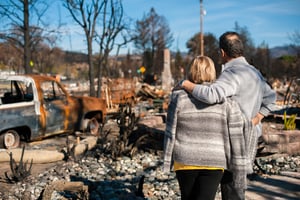 Recent disasters both near, like the flooding in Berks County, and far, like the destructive fire at the Notre Dame Cathedral, has many homeowners wondering whether they have enough Homeowners’ Insurance to protect their assets.
Recent disasters both near, like the flooding in Berks County, and far, like the destructive fire at the Notre Dame Cathedral, has many homeowners wondering whether they have enough Homeowners’ Insurance to protect their assets.
The time to answer that question is now, not after a disaster when it’s too late.
Here are Three Questions Every Homeowner Should Ask:
How Will I Replace My Home if it is Completely Destroyed?
Homeowners insurance is meant to protect your personal property (furniture, electronics, clothing, etc.) and your home. You must make sure you have enough coverage to rebuild your life if everything is destroyed.
When determining the amount of coverage needed, some homeowners purchase the minimum amount of insurance required by their lenders. This is rarely (if ever) enough to rebuild your home if it is destroyed, let alone replace everything inside it.
Some homeowners base their coverage on the real estate value of their home rather than what it would cost to rebuild. Again, this amount of coverage is rarely if ever enough to rebuild your home and replace the contents within.
These misconceptions and mistakes in property descriptions along with rising construction costs and home improvements after the purchase of policies have resulted in about 60% of all U.S. homes being underinsured by an average of 20 %, according to Consumer Reports.
It’s essential that you talk to an experienced insurance agent to help you determine the amount of coverage that is right for you.
Here are three additional coverages you may want to consider for your home:
An Extended Replacement Cost policy provides additional insurance coverage of 20% or more over the limits of your policy, which can be crucial if there is a widespread disaster in your area and the cost of construction increases.
Ordinance or Law Coverage – If you need to rebuild your home, you may be subject to new and sometimes stricter building codes, which could increase the cost to rebuild.
Flood Insurance – Flood damage is usually not covered under a standard homeowner’s policy, and there was a time when only people living in high-risk flood zones purchased additional coverage for flooding. In recent years, people who never experienced flooding in their homes before are experiencing it now, and they have little or no insurance coverage to help with the cleanup and repairs.
How Will I Replace My Possessions if They are Destroyed?
Most homeowners’ insurance policies cover your home’s contents, but it’s essential to understand the difference between replacement cost and actual cash value. Replacement cost policies pay what you need to replace a damaged or destroyed item; whereas actual cash value pays what the item is worth at the time it is damaged or destroyed.
For example, if there’s a fire in your home and your 10-year-old kitchen appliances are destroyed and need to be replaced, an actual cash value policy will pay you what those 10-year-old appliances were worth when they were damaged, which is probably not enough to go out and buy new appliances to replace the damaged appliances.
How Will I Pay for Living Expenses If I Can’t Live in My Home?
Where will you live if your home is temporarily inaccessible or needs to be completely rebuilt? You might have a friend or relative who would take you in for a little while, but for many families, that is not a viable option.
Coverage for additional living expenses will cover part or all of the cost of hotels, meals, and other living expenses you would incur if you were displaced due to an insured disaster. It would not cover regular expenses like your mortgage or groceries.
Taking the time to answer these three questions now will help ensure that should a disaster strike, you will be financially prepared.
How Can You Protect Your Home and Family From Disaster?
The experienced agents at American Insuring Group can provide a free insurance review to discuss your potential risks and how to protect you from those risks. Plus, as independent agents, we will check with lots of insurance companies to make sure you get the best price on that coverage. Give us a call at (800) 947-1270 or (610) 775-3848 or connect with us online.



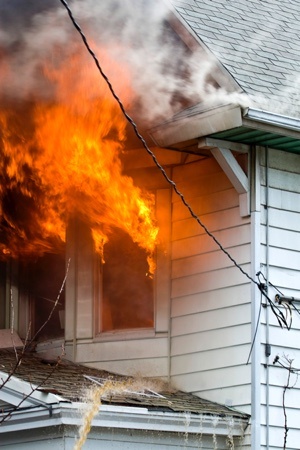 When people think of
When people think of  Our homes are becoming “smarter”! That's a good thing, right? Yes, you proably have
Our homes are becoming “smarter”! That's a good thing, right? Yes, you proably have 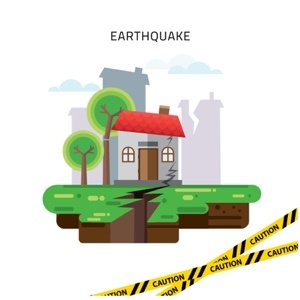 As you listen to the news about the devastating fires in Tennessee, tornado outbreaks in the Midwest, or destructive hurricanes pounding the coast of Florida, you may feel safe and sound here in Pennsylvania, especially if you have
As you listen to the news about the devastating fires in Tennessee, tornado outbreaks in the Midwest, or destructive hurricanes pounding the coast of Florida, you may feel safe and sound here in Pennsylvania, especially if you have 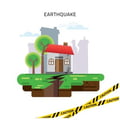
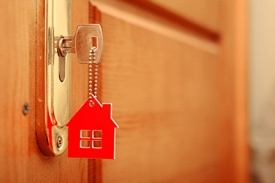 On the surface, home sharing looks like a simple idea. You, the homeowner, offer accommodations to a guest--a home sharer--in exchange for an agreed-upon fee and, in some cases, help with household tasks.
On the surface, home sharing looks like a simple idea. You, the homeowner, offer accommodations to a guest--a home sharer--in exchange for an agreed-upon fee and, in some cases, help with household tasks. Before you commit to becoming a host, check with American Insuring Group to understand what your existing homeowner’s policy covers and what exclusions might apply. Then you can purchase a policy that closes all of the gaps.
Before you commit to becoming a host, check with American Insuring Group to understand what your existing homeowner’s policy covers and what exclusions might apply. Then you can purchase a policy that closes all of the gaps.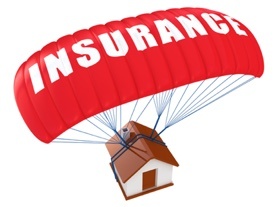 Like most homeowners, you’ve spent thousands (possibly hundreds of thousands) of dollars to purchase your home, most likely making it the largest purchase you will ever make. In order to protect your investment, you (hopefully) bought a homeowner’s insurance policy that will provide funds to replace your house if it is destroyed or to repair it if it is damaged.
Like most homeowners, you’ve spent thousands (possibly hundreds of thousands) of dollars to purchase your home, most likely making it the largest purchase you will ever make. In order to protect your investment, you (hopefully) bought a homeowner’s insurance policy that will provide funds to replace your house if it is destroyed or to repair it if it is damaged. Want to save on homeowners insurance? As independent agents, we're well qualified to find you the best homeowners insurance at the right price because we represent MANY competing insurance carriers.
Want to save on homeowners insurance? As independent agents, we're well qualified to find you the best homeowners insurance at the right price because we represent MANY competing insurance carriers. Look! Up at the sky! It’s a bird! It’s a plane! No, it’s a drone! And it’s coming to a neighborhood near you. The Consumer Electronics Association estimates that consumer drone purchases this year will put 300,000 more recreational drones in the skies. And while many consumers are now eyeing these unmanned, remote-controlled aerial toys as one of their next purchases, they don’t necessarily want their neighbors to buy one. Furthermore, few consider whether their homeowners insurance will cover them for drone-related accidents.
Look! Up at the sky! It’s a bird! It’s a plane! No, it’s a drone! And it’s coming to a neighborhood near you. The Consumer Electronics Association estimates that consumer drone purchases this year will put 300,000 more recreational drones in the skies. And while many consumers are now eyeing these unmanned, remote-controlled aerial toys as one of their next purchases, they don’t necessarily want their neighbors to buy one. Furthermore, few consider whether their homeowners insurance will cover them for drone-related accidents. It's every homeowner's worst fear. Imagine… You pull into your driveway after a lovely evening with your spouse and as you approach your front door – key in hand - you see broken glass and notice that the door isn’t shut completely. For a few seconds, you’re confused. Then, you realize that someone has obviously forced their way into your house. Your heart starts pounding and your mind begins racing. Your home has been burglarized. What do you do now?
It's every homeowner's worst fear. Imagine… You pull into your driveway after a lovely evening with your spouse and as you approach your front door – key in hand - you see broken glass and notice that the door isn’t shut completely. For a few seconds, you’re confused. Then, you realize that someone has obviously forced their way into your house. Your heart starts pounding and your mind begins racing. Your home has been burglarized. What do you do now? To ensure that your valuables are properly protected in the event of a home burglary,
To ensure that your valuables are properly protected in the event of a home burglary, 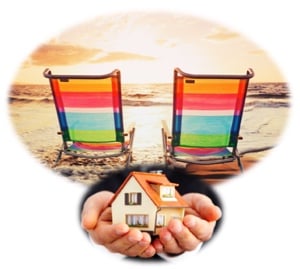 Why Home Security Should be a Priority
Why Home Security Should be a Priority Get a Homeowners Insurance Checkup for Your Peace of Mind
Get a Homeowners Insurance Checkup for Your Peace of Mind 2013 was a good year for the real estate industry. The price of homes increased by more than 20% in certain hotspots, and experts predict that home prices will continue to rise in 2014 – albeit, at a more moderate rate of 3-5%. This is great news if you’re a realtor or if you’re trying to sell your home. But you might be asking yourself, “Does this mean I need to reevaluate the insurance coverage on my home? Does this mean I have to pay higher house insurance premiums?”
2013 was a good year for the real estate industry. The price of homes increased by more than 20% in certain hotspots, and experts predict that home prices will continue to rise in 2014 – albeit, at a more moderate rate of 3-5%. This is great news if you’re a realtor or if you’re trying to sell your home. But you might be asking yourself, “Does this mean I need to reevaluate the insurance coverage on my home? Does this mean I have to pay higher house insurance premiums?”




